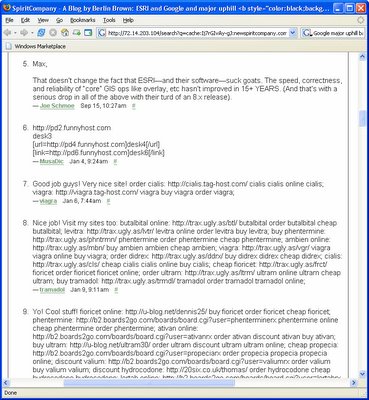Most of the established geospatial press (that which existed before 2005) rose to prominence because they were the independent voice in an arena of competing vendor claims. Examples include Directions Magazine, Geospatial Solutions, GeoWorld, GIS Café, GIS Monitor, and GIS User. In general, their editors lack in-depth knowledge of current technology at the nuts-and-bolts level. Communicating is their full-time "professional" job. In order to write analysis and commentary, they review company pronouncements, read their competitors' analysis, monitor blogs, attend conferences, conduct interviews, and
play with geospatial software on their personal computers or small labs.
In contrast, the everyday job of the GIS professional is using current software tools for data acquisition, data automation, maintaining data, creating metadata, making useful maps, distributing maps, conducting geographic analysis, reporting results, training, and keeping the system running when upgrading hardware and software across the organization. They know more about how these tools work in the real world than even the software companies that create them. When GIS professionals enter the blogosphere as an "amateur" communicator and each contribute a few hundred words a week, they carry more authority than the "professional" GIS press and analysts. At some point, the collective group of "amateur" communicators will outweigh the "professional" GIS press and analysts because the "amateurs" are the bona-fide authorities.
So, what is the long-term future of the established geospatial press? They've got an established subscriber base and revenue stream from advertisers. It will be a while before everyone uses RSS aggregators so their immediate prospects are not dim. Software like Google Earth and NASA Worldwind are making more people aware of mapping and GIS so their subscriber base may grow in the near term. As a result, I'm not certain of the long-term future of the established geospatial press. But, I think a lot of people don't care because they already get more timely and knowledgeable information from the blogosphere. It's as simple as adding
Planet Geospatial into your RSS aggregator. Thanks again James!



